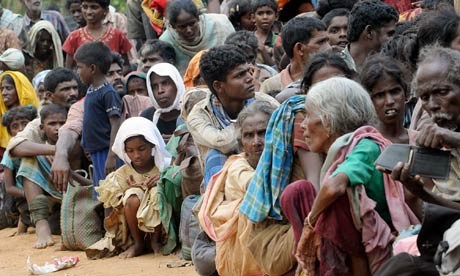 During the Fourth Eelam War, in order to ensure India’s support to the ongoing military operations, President Mahinda Rajapaksa used to assure New Delhi that his government would sincerely and expeditiously implement the 13th amendment, once the war was won. On few occasions he remarked that Colombo will go even beyond the 13th amendment.
During the Fourth Eelam War, in order to ensure India’s support to the ongoing military operations, President Mahinda Rajapaksa used to assure New Delhi that his government would sincerely and expeditiously implement the 13th amendment, once the war was won. On few occasions he remarked that Colombo will go even beyond the 13th amendment.
Four years have passed since the decimation of the LTTE, but ethnic reconciliation remains a distant dream. Instead of entering into a comprehensive dialogue with the Tamil National Alliance (TNA) to arrive at an amicable solution, the media reports suggest that the Government was preparing to whittle down important provisions of the 13th Amendment. Contradictory statements were issued by Government spokesmen about impending constitutional amendments. The minority ethnic parties expressed their misgivings. The left wing allies of the Government had their reservations. In order to diffuse the situation, the President announced that the Parliamentary Select Committee has been assigned the task of suggesting amendments to the Constitution. Needless to say the views of the Sinhala majority will prevail in the Parliamentary Select Committee.
In order to understand the policies and programmes of the present Government, it is necessary to highlight the basic transformation that has taken place in the Island Republic. Chandrika Kumaratunga and Ranil Wikramasinghe were conscious that there were serious flaws in the nation building experiment. They sincerely believed that ethic reconciliation can take place by devolving more powers to the Provincial Councils and creating space for self-government. The present Government has a retrograde policy, which can be summed as follows. The destruction of the Tigers saw the end of the terrorist problem, which was the only problem confronting Sri Lanka. There is no ethnic problem.
Since New Delhi maintains that a solution to the ethnic problem can be found if Colombo sincerely implements the 13th Amendment, the question naturally arises – do the Sri Lankan Tamils subscribe to that point of view. It should be pointed out that given the allergy of Sinhalese leaders to the term federal, the Provincial Councils, which came into existence after the enactment of the 13th amendment, was a paradoxical attempt to introduce elements of federalism in a unitary setup. The Sinhalese ideology upheld the necessity to have centralization of powers and close identification of the nation state with Sinhalese community. It was, therefore, but natural that the Northeast Provincial Council would get entangled in serious difficulties. It had a short life of only 17 months, from November 1988 to March 1990. It lacked financial resources. What is more, by disingenuous mechanisms, like including a subject within “national policy”, central authority was re-established in agrarian services and national transport corporations. Education was a devolved subject but by terming a school as “national school” it could be brought under central control. President Premadasa established Divisional Secretariats, which were under central control. They further undermined the Provincial Councils.
Summing up the functioning of the Provincial Councils, Prof. GL Peiris, who was closely associated with both Chandrka and Ranil, admitted: “In fact, we have no devolution at all. Decentralsation - yes, devolution - no”. Whether Prof. Peiris remembers this statement which he made while inaugurating the India-Sri Lanka Consultation on Devolution or not is debatable. The present Government has already struck the death knell on devolution process. The merger of the north and the east, which is an article of faith as far as Si Lankan Tamils are concerned, has been undone by a judicial pronouncement. The Government spokesmen have made it clear that Colombo has no intention to devolve police and land powers.
What is not being realized by the policy makers in New Delhi is the fact that both Chandrika and Ranil were willing to go beyond 13th Amendment. The Chandrika constitutional proposals, Mangala Moonasinghe Report, the draft 2000 Constitution and the Experts Committee Report - all of them have made positive recommendations which go far beyond the 13th Amendment. The draft Constitution of 2000 was a consensus document. The legal luminary of the UNP Choksi had a big role in its preparation. The TULF leaders made their benign inputs. The Experts Committee Report, for the first time, has touched upon the problems facing non-territorial minorities – the Moslems and the Malaiha (hill country) Tamils and has made positive recommendations.
Can India afford to be a silent spectator to the ominous developments in its southern backyard? Prime Minister Manmohan Singh has expressed his unhappiness and concern about the sad turn of events. The need of the hour is for India and international community to pressurize Colombo not to proceed with constitutional amendments. On the other hand, negotiations should immediately commence between the Government and the TNA as to how to implement the positive aspects of the draft 2000 Constitution and the Expert Committee Report.
Courtesy : Institute of Peace and Conflict Studies (http://www.ipcs.org)